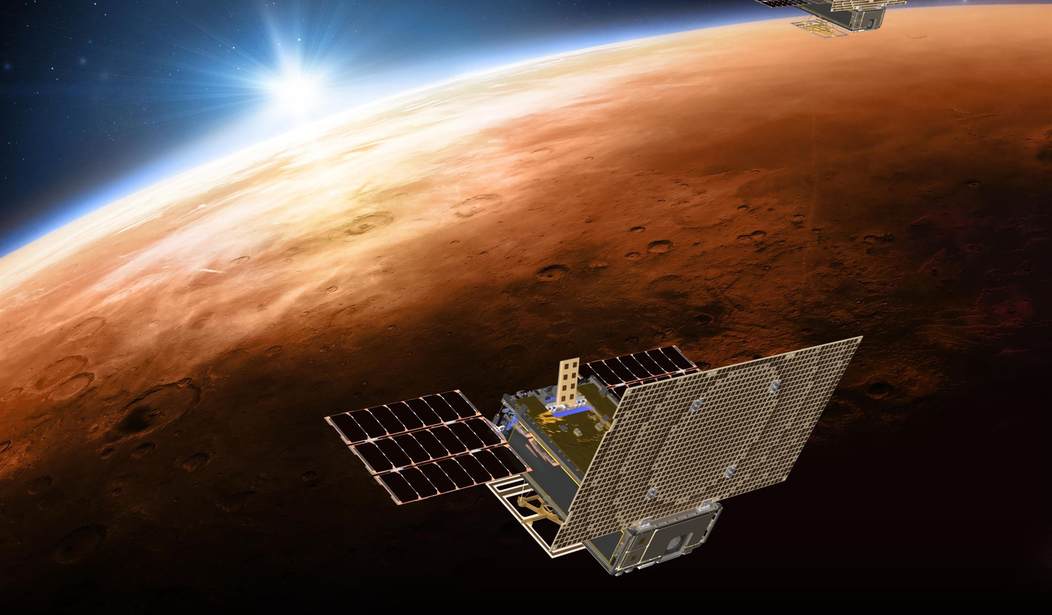Back in 2019, Preston Dunlap, a technologist with decades of experience in cutting edge applications and technology, was tapped to be the Pentagon’s first Chief Architect Officer, serving the Space Force and the Air Force. He was charged with advancing the state of the Pentagon’s development of new technology in a variety of fields. After three years of attempting to do just that, Dunlap turned in his resignation yesterday. In a lengthy resignation letter, he warned that the United States is in danger of falling behind its adversaries in a variety of areas, including satellite technology, weapons development, and artificial intelligence. He suggested that the Pentagon needs to emulate SpaceX and Elon Musk, being willing to spend money and take chances in an effort to remain on the cutting edge. And he’s not the first person to sound these particular alarm bells. (Yahoo News)
A senior official responsible for driving technological innovation at the U.S. Department of Defense has resigned, saying the Pentagon needs “structural change” and should behave more like SpaceX, Elon Musk’s satellite company that has shaken up rocket launches.
“We’re falling behind the commercial base in key areas, so we’ve got to catch up,” Preston Dunlap, the first person in the U.S. Department of Defense to fulfill the role of chief architect officer, told Bloomberg News in an interview. As a result the U.S. risked losing its technological edge against potential adversaries, he said.
Dunlap, who handed in his resignation on Monday after three years in the post at the U.S. Space Force and U.S. Air Force, was responsible for pushing more technology into a $70 billion budget for research, development and acquisition.
You can read more of Dunlap’s history and professional accomplishments here. He said he is working on starting his own company with a focus on satellites, data and artificial intelligence.
Sadly, Dunlap isn’t the only one of the Pentagon technology wizards to bail out recently. David Spirk, the Defense Department’s outgoing chief data officer, resigned earlier this month. He too warned that the Pentagon isn’t focusing enough on areas such as artificial intelligence, machine learning and quantum science, and could soon fall behind China in these areas. At the end of last year, the U.S. Air Force’s first chief software officer similarly turned in his resignation, saying that we are “losing the AI race to China.”
The Pentagon is undergoing a serious “brain drain” at what may be the worst possible time. Only recently, the Defense Intelligence Agency warned that China is close to outpacing us in both space warfare and espionage with their rapid advances in technology. (Most of which they stole from other countries but then improved upon rapidly.)
Getting back to Dunlap for a moment, the key point he was attempting to drive home seems obvious. The group that the Pentagon is getting beaten to the punch by isn’t specifically the CCP or any other government. They are being left behind by the private sector. Between SpaceX and Google, along with many other technology outfits, huge advances in all of these areas are being made and the Department of Defense doesn’t really have a horse in that race currently.
So how do we get back in the game? Perhaps it’s time to take Dunlap’s advice to heart and consult with some actual experts who are out there on the cutting edge. It might require loosening up all of the secrecy that infests the Pentagon but assembling a team of young innovators from some of these cutting-edge companies to come and overhaul the system might be the way to retain or regain our edge. Otherwise, we’re going to wake up some morning with all of our communications systems crashing and our satellites floating dead in orbit and realize that we’ve already lost the new space race. And then we could be in for a world of hurt.








Join the conversation as a VIP Member